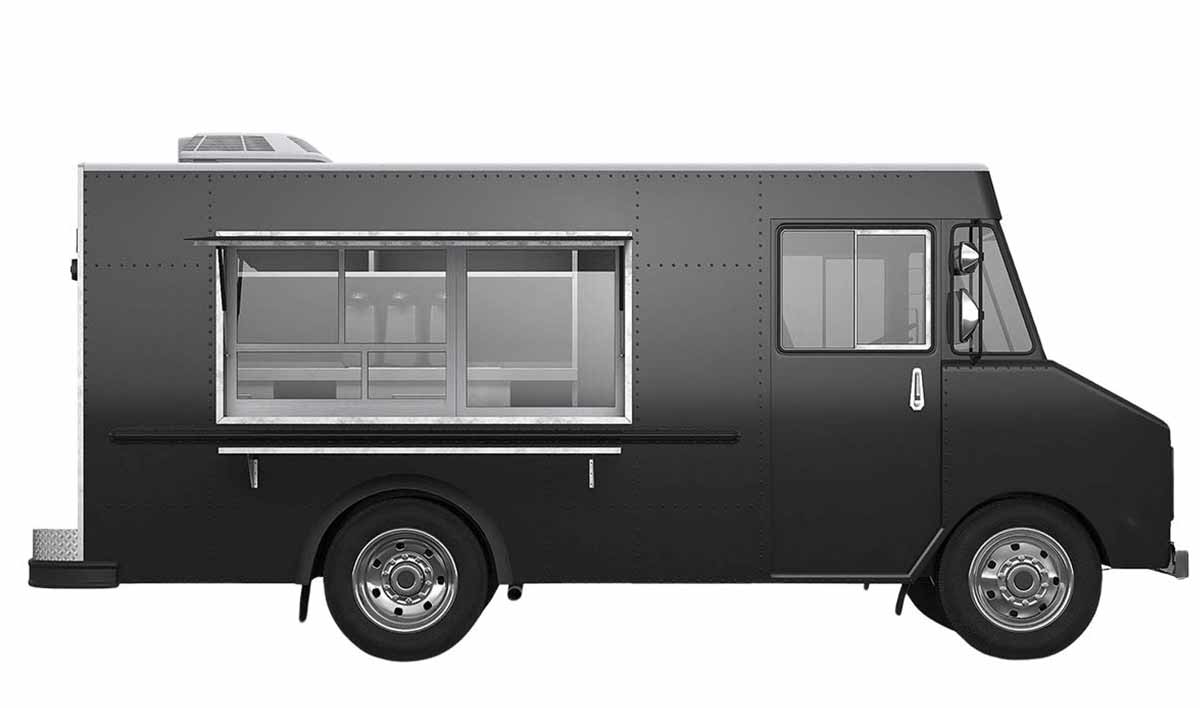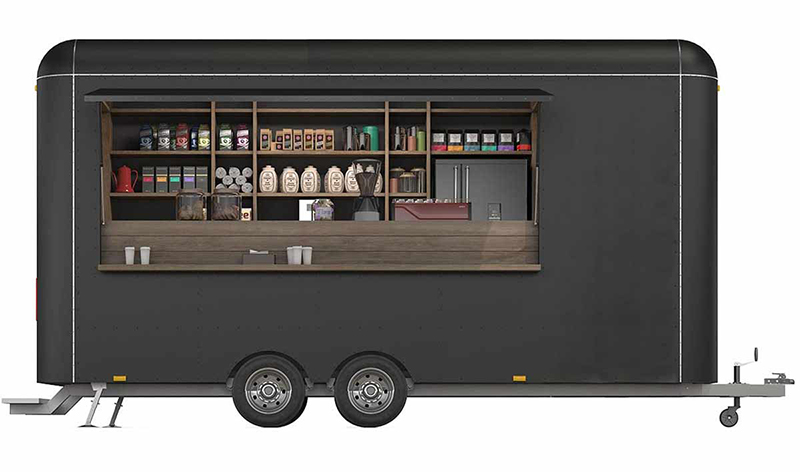Deciding between a food truck and a food trailer is a significant choice for aspiring mobile food vendors.
Each option has its unique set of advantages and potential drawbacks that cater to different business models and personal preferences. Understanding these differences is crucial for making an informed decision that aligns with your culinary vision, budget, and operational goals.
In this guide, we will explore the characteristics of both food trucks and food trailers, giving you the pros and cons that will help you evaluate which might be the better fit for your mobile food venture.
Whether you’re drawn to the flexibility of a truck or the spaciousness of a trailer, this comparison will provide you with valuable insights to kickstart your business.
Food Truck vs Food Trailer: What They Have in Common
At their core, both food trucks and food trailers share several common features that make them well suited for the mobile food industry.
Mobility: The ease of transporting the kitchen and dining space is a defining characteristic of both food trucks and food trailers. This mobility grants greater flexibility in reaching customers and catering to various events or locations.
Compact Design: Due to the need to fit within restricted spaces, both food trucks and trailers are designed with a compact layout that maximizes the use of available space. This compact design enables efficient food preparation and service.
Specialized Equipment: Food trucks and trailers are equipped with specialized cooking appliances, including grills, fryers, and refrigeration units, enabling them to prepare a diverse array of menu items on the go.
Branding and Aesthetics: Food trucks and trailers provide entrepreneurs with a unique platform to showcase their brand and establish a distinctive visual identity. This includes custom paint jobs, logos, and design elements that not only attract customers but also help them stand out in the competitive mobile food industry.
Learn More: Food Truck Branding Secrets Revealed

Food Truck vs Food Trailer: Pros & Cons

Food Truck Pros
Versatility in Movement: Food trucks, being self-contained vehicles, offer more versatility in terms of movement, allowing operators to quickly change locations without the need for an additional vehicle to tow them.
Ease of Setup: Setting up a food truck is often quicker and less cumbersome compared to a food trailer, as there is no need to hitch or unhitch the trailer from a towing vehicle.
Quicker Response to Trends: With the ability to relocate rapidly, food truck owners can more easily capitalize on emerging trends or popular events, boosting their sales potential.
Independence of Operation: Food trucks provide a one-stop solution, eliminating the dependence on a separate towing vehicle, thus streamlining operations and logistics.
Enhanced Urban Access: Due to their self-contained nature and smaller footprint, food trucks typically have better access to urban environments and high-traffic areas where parking space is limited.
Streamlined Licensing and Regulations: In many regions, food trucks may have fewer restrictions and more streamlined processes for licenses compared to trailers, facilitating easier entry into the market.
Food Trailer Pros
Lower Initial Investment: Food trailers typically cost less to purchase and set up compared to food trucks, making them a more affordable option for entrepreneurs starting out.
Separate Transportation: Unlike food trucks, food trailers allow owners the flexibility to detach the trailer and use a separate vehicle for transportation, potentially reducing vehicle maintenance costs.
Larger Capacity: Food trailers often offer more interior space, providing greater room for kitchen equipment and storage, which can enhance operational efficiency.
Greater Durability: Trailers are typically built on a sturdier chassis, making them more durable and able to withstand the rigors of frequent transportation and setup and takedown processes.
Reduced Fuel Costs: Since food trailers are not self-propelled, they do not incur fuel costs when stationed, leading to potential savings over time.
Depreciation Rates: Food trailers may experience lower depreciation rates than food trucks because they are not driven, resulting in more sustained value over time.
Easier Permitting and Regulations: In some jurisdictions, food trailers may face fewer regulatory hurdles or licensing requirements compared to their food truck counterparts, making the startup process more streamlined.
Food Truck Cons
Limited Space: Food trucks have less space compared to food trailers, which can restrict menu options, storage, and the number of staff that can work comfortably inside.
Higher Initial Costs: The cost of purchasing a fully equipped food truck can be higher than buying a food trailer, possibly making it less accessible for new entrepreneurs.
Maintenance Challenges: Food trucks require more extensive maintenance as they combine both the vehicle and kitchen, making repairs potentially more complex and costly.
Fuel Expenses: Operating a food truck involves ongoing fuel costs, especially if the business requires frequent relocations to maximize sales opportunities.
Restricted Layout Customization: Due to size constraints, there are limitations in how the kitchen layout can be customized, which might not suit every culinary need or operational preference.
Parking Limitations: Finding suitable parking, especially in congested urban environments, can be challenging, impacting where and when the food truck can operate.
Food Trailer Cons
Limited Mobility: Food trailers require a separate towing vehicle, which can limit flexibility and make it more challenging to navigate tight urban spaces or frequently change locations compared to self-propelled food trucks.
Complex Setup: Setting up a food trailer involves hitching, unhitching, and leveling the trailer, which can be time-consuming and complicated, particularly in uneven or crowded locations.
Parking and Storage Issues: Finding suitable parking or storage for both the trailer and the towing vehicle can be more difficult, as they require more space than a single food truck.
Dependent on Towing Vehicle: The operation of a food trailer is reliant on the availability and functionality of the towing vehicle; if the vehicle encounters mechanical issues, this could halt the business operations entirely.
Potential for Higher Initial Licensing Costs: Although food trailers might face fewer regulatory hurdles, the need for permits for both the trailer and the towing vehicle can lead to higher upfront licensing costs.
Learn More: The Art Of Operating Concession Trailers
Food Truck vs Food Trailer: Which is Better?
Both food trucks and food trailers have their advantages and disadvantages, making it difficult to determine which is better overall. Ultimately, the decision between a food truck or a food trailer will depend on the specific needs and preferences of the business owner.
Food trucks offer greater mobility and flexibility, allowing for easier navigation in urban areas and quicker changes in location. They also typically have lower initial costs and require less maintenance compared to food trailers.
On the other hand, food trailers may provide more space for cooking and storage, making them suitable for larger menus or catering events. They also have the potential for a more streamlined setup process with fewer regulatory hurdles.
Ultimately, the choice between a food truck or food trailer will depend on the entrepreneur’s business goals, budget, target market, and local regulatory environment. Both options offer unique advantages and present exciting opportunities for mobile food entrepreneurs to thrive in the dynamic culinary landscape.
Are You Ready To Take Your Mobile Food Business to the Next Level?
Choosing the ideal mobile food solution for your business—whether a food truck or a food trailer—is a decision that needs to be carefully made.
If you’re still unsure about the best choice for your needs, our experts at Elhaj Custom Food Trucks and Trailers are here to guide you through the process and help you identify the perfect option tailored specifically to you.
We understand that every food entrepreneur has their own set of requirements, budget, and vision for their mobile business. That’s why we take the time to carefully assess your goals, and operational needs to recommend the optimal mobile food solution, whether it’s a food truck or food trailer.
Whether you’re leaning towards a food truck or food trailer, Elhaj Custom Food Trucks and Trailers has the expertise to turn your culinary dreams into reality.
Experience the Elhaj difference and let us help you choose the perfect mobile food solution to drive your business forward.

